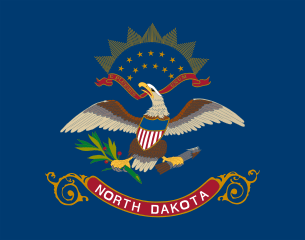
“54-03.2-02. Definitions.
“As used in this code:
- “‘Hearing’ means any meeting in the course of an investigatory proceeding, other than
a preliminary conference or interview at which no testimony is taken under oath,
conducted by an investigating committee for the purpose of taking testimony or
receiving other evidence. A hearing may be open to the public or closed to the public. - “‘Investigating committee’ means any of the following:
- “A standing or select committee of either house of the legislative assembly.
- “A joint committee of both houses.
- “An authorized subcommittee of a legislative committee.
- “The legislative management and any interim committee of the legislative
management if specifically designated by the legislative management as an
investigating committee with subpoena powers. - “Any other body created by law, the members of which may include nonlegislators.
Investigating committees have the power to issue subpoenas and subpoenas
duces tecum in the manner provided for in section 54-03.2-08. Nothing in this chapter
may be construed as in derogation of any power to issue subpoenas which is inherent
in the legislative assembly or any of its committees.
- “‘Public hearing’ means any hearing open to the public or the proceedings of which are
made available to the public.
“54-03.2-03. Establishment of investigating committees by legislative assembly.
“An investigating committee may exercise its powers during sessions of the legislative assembly and also in the interim between sessions when so provided by law or by the motion, resolution, or statute by which the committee was established or from which it derives its investigatory powers. The motion, resolution, or statute establishing a temporary investigating committee must state the committee’s purposes, powers, duties, and duration, the subject matter and scope of its investigatory authority, and the number of its members…
“54-03.2-07. Hearings.
“An investigating committee may hold hearings appropriate for the performance of its duties, at such times and places as the committee determines.
“The committee shall provide by its rules that each member of the committee be given at least three days’ written notice of any hearing to be held when the legislative assembly is in session and at least seven days’ written notice of any hearing to be held when the legislative assembly is not in session. Such notices must include a statement of the subject matter of the hearing. A hearing, and any action taken at a hearing, may not be deemed invalid solely because notice of the hearing was not given in accordance with this requirement.
“Any investigating committee may not conduct a hearing unless a quorum is present.
“54-03.2-08. Issuance of subpoenas.
“Every investigating committee may, by majority vote of all of its members, issue a subpoena requiring a person to appear before the committee and be examined in reference to any matter within the scope of the inquiry or investigation being conducted by the committee. The committee may also issue a subpoena or subpoena duces tecum requiring any person to appear before the committee and bring any books, papers, or other documents pertinent thereto.
“A person subpoenaed to attend a hearing of an investigating committee shall receive the same fees and allowances as a person subpoenaed to give testimony in an action pending in a court of record, which fees and allowances must be paid from either the legislative appropriation, or from the appropriation, if any, to the investigating committee issuing the subpoena” (North Dakota Century Code, Chapter 54-03.2: Conduct of Legislative Investigations).







